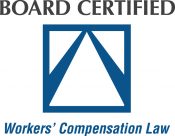
In many workers’ comp cases, there is an issue of when the employee should be paid for missing work. If an employee must miss work to see a doctor for their work-related injury, should they be paid? The simple answer is yes, however, the situation can be handled in several different ways depending on the employer of the injured party.
Is there a difference between what kind of doctor’s appointment is being attended?
The first question that arises when the injured party must miss work to see the doctor is if it matters what kind of appointment is being attended. According to John Hedrick, there is no difference in a workers’ compensation case between different types of medical appointments. Whether you are leaving work for a scheduled doctor’s appointment to care for an injury or if you need to leave work for a therapy session, it is all the same under workers’ compensation law.
The reason for the visit, or who you are leaving work to see doesn’t matter. As long as you are leaving work to see a doctor for your work-related accident, you should be compensated for your lost wages. It doesn’t matter if the appointment is for an X-ray, MRI, physical therapy, or any other type of medical appointment.
How will the injured employee be compensated for time lost for medical appointments?
So now that you know the difference between appointments is not an issue, how can the situation be handled by the employer, and what are the different ways that you can be compensated for the time you spend missing work?
If the employer does not pay the injured employee during the time that they take off to visit the doctor, this amount should be calculated and compensated in the workers’ comp case. The time missed for work should be accounted for and the injured employee will be compensated. However, if the employer agrees to keep the employee on the clock while they attend their appointments, it can be made into a more simple process.
“The employer is not legally required to keep an employee on the clock during doctors appointments, however, it may make for a much easier situation for the case” – John Hedrick
The easiest way that the situation can be handled by the employer is for them to agree to keep the injured employee on the clock while they are away for their appointment. This provides both parties with a simple solution, causing no problems. The employee gets their pay, while the case does not have to account for the time lost and make a mess out of calculating how much the employee should be compensated for.
The Seven day waiting period for workers’ compensation
According to workers’ compensation law, there is a seven-day period from the time of injury in which an employee does not have to be paid for missed work. If the injury of the employee allows them to return to work within the seven-day period, the employee does not have to be compensated for any work that was missed.
If the employee is able to return from work between 8 and 21 days after the injury has occurred, the employee will be compensated for any amount of time that was missed within days 8-21, but not for the first 7 days.
Finally, If the employee remains disabled for at least 21 days after the injury occurs, the employee is entitled to receiving compensation for any work time missed after the accident occurred.
Consult with a Workers’ Comp Attorney to find out what you should be compensated for
 Each workers’ compensation case is different in its own right, so It is difficult to determine what exactly you should be compensated for on your own. A workers’ comp attorney like John Hedrick has worked on dozens of cases over the years and is an expert in the field. If you have been injured on the job in North Carolina, fill out the contact information below to receive a free consultation with John Hedrick.
Each workers’ compensation case is different in its own right, so It is difficult to determine what exactly you should be compensated for on your own. A workers’ comp attorney like John Hedrick has worked on dozens of cases over the years and is an expert in the field. If you have been injured on the job in North Carolina, fill out the contact information below to receive a free consultation with John Hedrick.



